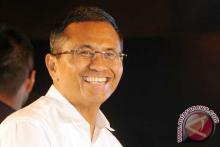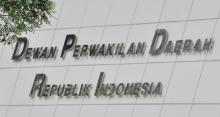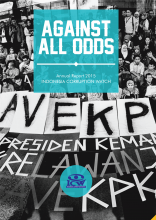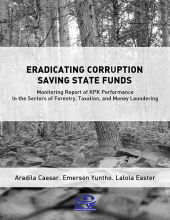Dahlan Iskan, the former Minister of State-Owned Enterprise during President Susilo Bambang Yudhoyono administration, as named a suspect by the East Java High Prosecutor in relation to the suspected corruption in the sale of assets of PT Panca Wira Usaha (PWU) in 2003. Dahlan Iskan was then the CEO of PT PWU.
In spite of public disapproval, members of the House of Representatives (DPR) continue to go on ‘working journeys’ abroad, contending that they are attending conferences or collecting information for revising laws.
WEEKLY SUMMARY
-
TRUTH: Strange Sentence for Sister of Ratu Atut www.antikorupsi.org/ZBM
-
Regarding Information Dispute with State Audit Board, ICW Fulfills Summons of Public Information Commission www.antikorupsi.org/ZBQ
The hubris over the alleged corruption case of the electronic based ID card (e-KTP) project comes under the limelight again. The handling of the case, suspected to have resulted in Rp 2 trillion of state loss, has been regarded as slow.
The former Director General of Population and Civil Registry of the Ministry of Home Affairs, Irman, on 30 September 2016, was officially designated as suspect. Irman allegedly inflated the price in the e-KTP.
2015 can be considered as the most difficult year to promote the anti-corruption agenda. A new leader does not necessarily mean a bigger hope. It probably does in the beginning, but the political reality will slowly destroy public sentiment that dreams that under the new President, Indonesia will be braver to fight corruption. On the contrary, the reality is just the opposite of that dream. Efforts made from various perspectives and forces to discourage the anti-corruption agenda are increasingly evident. The result is a setback for anti-corruption movements.







